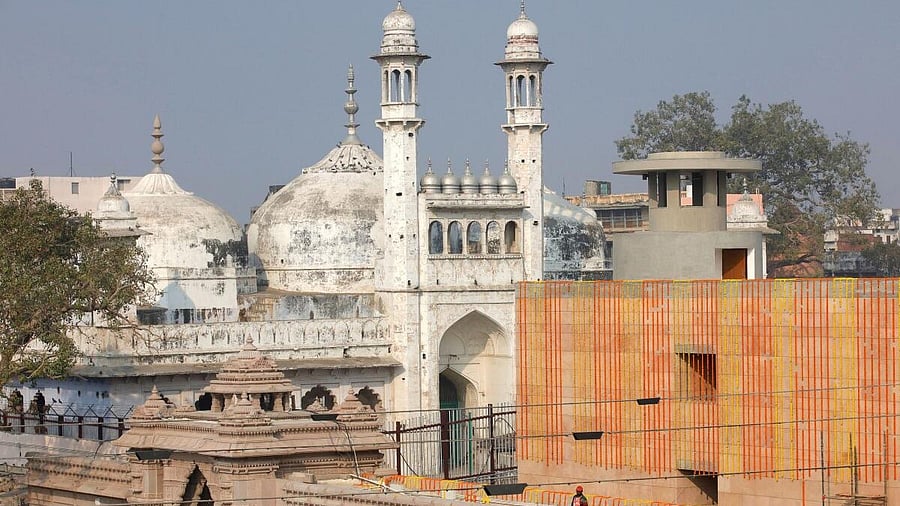
Gyanvapi Mosque.
Credit: Reuters File Photo
In a significant ruling, a Varanasi court on Wednesday allowed a plea by the Hindu plaintiffs seeking worshipping rights in the tehkhana (basement) of the contentious Gyanvapi Mosque.
The court had on Tuesday completed the hearing in the matter and reserved its order.
Vishnu Shankar Jain, the lawyer of the Hindu plaintiffs, said in Varanasi that the district court has allowed worshipping in the Mosque's basement, also known as Vyasji ka Tehkhana, and directed the district magistrate of Varanasi to make necessary arrangements in this regard within a week's time.
The court had earlier handed over the maintenance and security of the basement to the district administration in Varanasi. ''Anyone can now visit the basement and worship there,'' Jain said, citing the order of district judge Ajay Krishna Vishwesh.
Jain termed the order "historic" and ''turning point'' in the Kashi Vishwanath Temple-Gyanvapi Mosque dispute and sought to liken the court order to the earlier order by a court to open the locks of the Ram Temple on February 1, 1986. ''It is the first step toward total liberation of the Kashi Vishwanath Temple,'' he added.
The Hindu side had contended that worshipping was carried on in the basement by one Somenath Vyas and his family until November 1993 and that the then Mulayam Singh Yadav government in the state had banned worshipping there after November 1993.
The Anjuman Intezamiya, which looked after the Mosque, opposed the plea contending that the basement was part of the Mosque and that the right to worship there could not be granted.
The premises had been a bone of contention between the two communities for the past several decades but there was renewed clamor to ''take back'' the Kashi Vishwanath Temple premises by the saffron outfits after the favourable decision of the apex court in the Ram Temple case.
The Hindu petitioners contended that a part of the temple had been demolished by the Mughal emperor Aurangzeb in the 17th century. On the other hand, the Muslim side arugued that the Mosque existed before the reign of Aurangzeb and also claimed that the same had also been mentioned in the land records.
The Hindu side's lawyer had earlier claimed that the report of the Archaeological Survey of India (ASI), which conducted a scientific survey of the contentious Gyanvapi Mosque premises in Varanasi and submitted the survey report in the district court earlier, found evidence of a Hindu temple there.
The lawyer of the Muslim plaintiffs in the Kashi Vishwanath-Gyanvapi Mosque case, however, refuted claims and said that "broken idols'' were no proof there existed a Hindu temple in the Gyanvapi Mosque complex.